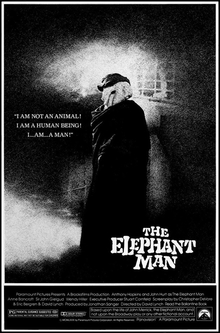
There's been an awful lot already said about David Lynch's adaptation of Dune, ranging from "disaster flop" to "misunderstood masterpiece". The truth, as always, is more elusive than that. The film, objectively, is definitely a disaster, in sheer terms of its implacable fate. And it is also quite misunderstood, probably because it is stubbornly opaque to anyone already unfamiliar with the novel, much as I was as a kid when I first saw it. ("Kwisatz Haderwhatnow?") And while hardly a masterpiece - which is really just an insult to an artist with at least four other far more realized masterpieces to speak of - it does still contain a number of masterful moments, sustaining enough potential for speculative consideration of possibilities had Lynch either 1) had the time to expand the feature film constraints; 2) had the freedom to disavow any commercial obligations; 3) had the resources to transcend the FX budget.
Lynch has notoriously disowned the "director's cut", which is really an expanded cut used for some TV screenings. It's understandable that someone as vigilantly protective of his vision as Lynch would be so reflexively dismissive. But, truth be told, again for an audience not-yet familiar with the source material, it is extremely helpful to have the opening exposition to establish the importance of the Spacing Guild, and their dependence on spice production, and the political dynamics between the Emperor and the dueling Houses, which are details largely overstepped in Lynch's feature film, or to the extent these are explained the audience may have been distracted wondering what the fuck this embalmed smoking vagina was talking about. Also, a brief cut scene showing the harvesting of the Water of Life, and the overall symbiosis between the sandworms and the spice, is pretty significant information, again, in establishing the prime importance of the spice in both spiritual and imperial terms. (To be fair, both of these issues of the spice's importance to the Guild and as a spiritual entheogen are also given pretty short shrift in the more generously paced Villenueve films as well, and with less excuse.)
The poor blue-screen FX is either a relic of its time or a careless flaw. But the most common criticism among the book's fans is in the ending, and how the film sets up the messianic mission of Paul Atreides in seeming defiance of the series' evolution. This may be an unfortunate symptom of the film's box office failure, as we have learned recently that Lynch had, in fact, been working on a sequel which would have incorporated the book's sequel, Dune Messiah, being a better vehicle of contrast, showing the less glorious aspects of Paul's Jihad. Unfortunately, as the script was unfinished, it's a matter of speculation. However some of Lynch's surviving ideas for the sequel are quite intriguing in a rather Cronenbergian fashion. After all, I think we can agree that Lynch seemed to be having more fun dealing with the Harkonnen excess anyway, finding his closest muse with the mentat Piter, so a world full of mentat excess (the Bene Tleilax, for the uninitiated) as the antagonist would have been quite attractive to his imagination.
Ultimately, Lynch's Dune is more of a curio cul-de-sac in his career, a mid-life detour which served as a valuable learning curve for his creative ethics in dealing with the studios and his financiers. And the film is still a lot of fun for its flamboyance and flair, but inevitably science fiction proves to be superfluous for Lynch's vision, which is already so metaphysically rich. Instead, where Lynch would thrive is in his more well-known tension between "the mundane and the macabre", the all-too-real unfathomable phantoms lurking within our ordinary facades which make such external exoticisms as space operas seem so quaint.






















 Rock wrote:
Rock wrote:

